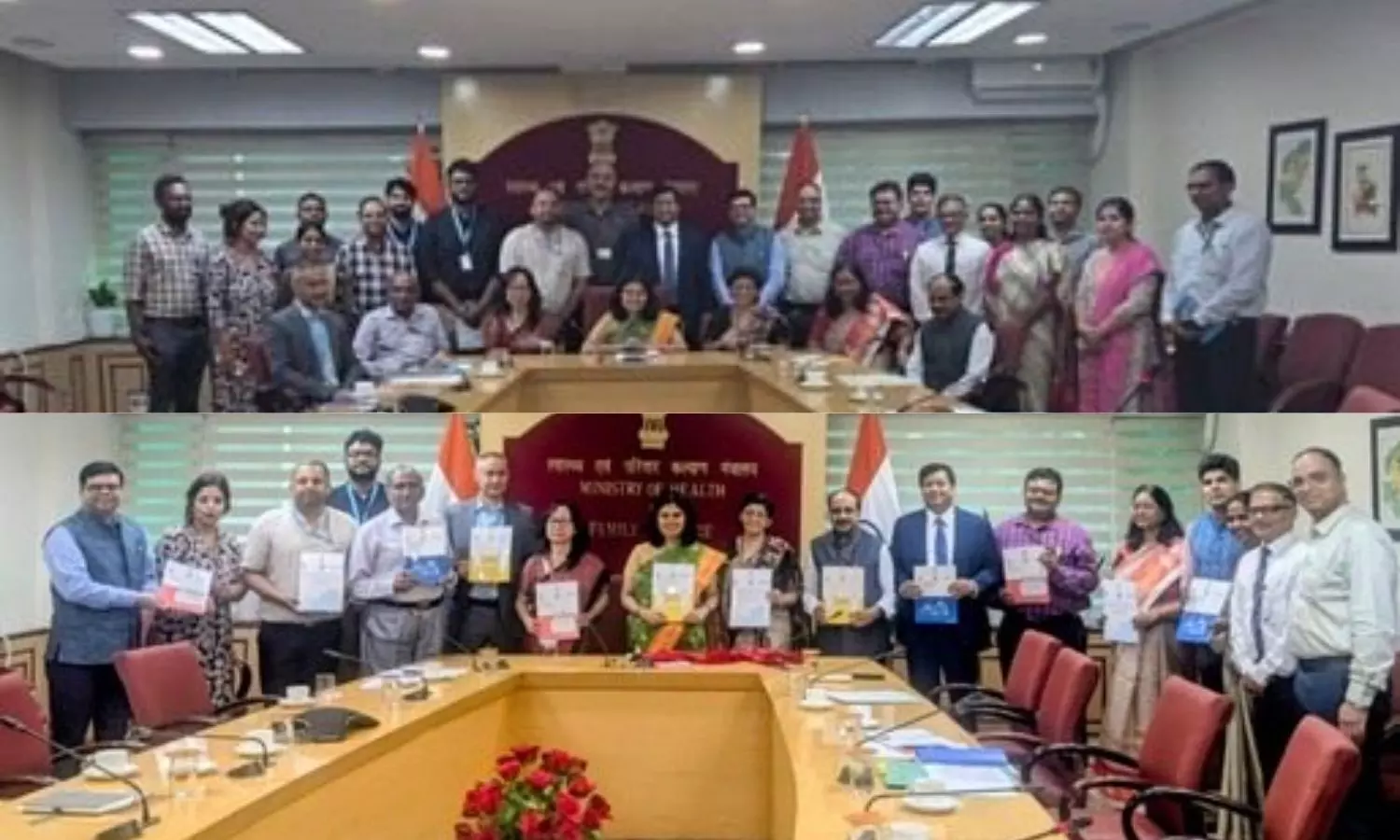Centre launches training modules on managing chemical emergencies
- byDoctor News Daily Team
- 25 October, 2025
- 0 Comments
- 0 Mins

New Delhi: Chemical emergencies pose a significant and evolving threat to public health, environmental safety, and societal stability, underscoring the need for strengthened national preparedness and response mechanisms. In the present fast-growing Industrial economy, updating and keeping oneself prepared for any such emergencies is of paramount importance. As a step towards enhanced preparedness, the Secretary of Health and Family Welfare, along with Key Senior officials from various line ministries, national agencies, experts from the private sector, industry and academia, released the modules on Public Health Management of Chemical Emergencies at Nirman Bhawan, New Delhi. Also Read: Union Health Secretary chairs high level meeting with States, UTs on quality, rational use of cough syrups Three specialized training modules have been developed by the National Centre for Disease Control (NCDC), Ministry of Health and Family Welfare (MoHFW), Government of India, on the Public Health Management of Chemical Emergencies in collaboration with NDMA (National Disaster Management Authority) and with technical support from the World Health Organization (WHOIndia), the PIB stated. • Module 1: Preparedness, Surveillance, and Response for Public Health Management of Chemical Emergencies. • Module 2: Pre-Hospital Management of Chemical Emergencies. • Module 3: Medical Management of Chemical Emergencies These modules aim to equip public health professionals, healthcare workers, emergency responders, and policymakers with the necessary knowledge, skills, and operational tools for timely and effective management of chemical incidents. Strengthening chemical emergency management also supports core capacities under the International Health Regulations (IHR 2005), contributing to both national and global health security. The launch event brought together officials from the Ministry of Health and Family Welfare, NDMA, Central government ministries, Central institutions, Academia, theWHOCountry Office for India, and other key partners to reaffirm the commitment towards building a “Self-reliant Resilient Nation”. Also Read:Health Sector Budget Allocation as Percentage of GDP Declining: Parliamentary Panel
Disclaimer: This website is designed for healthcare professionals and serves solely for informational purposes.
The content provided should not be interpreted as medical advice, diagnosis, treatment recommendations, prescriptions, or endorsements of specific medical practices. It is not a replacement for professional medical consultation or the expertise of a licensed healthcare provider.
Given the ever-evolving nature of medical science, we strive to keep our information accurate and up to date. However, we do not guarantee the completeness or accuracy of the content.
If you come across any inconsistencies, please reach out to us at
admin@doctornewsdaily.com.
We do not support or endorse medical opinions, treatments, or recommendations that contradict the advice of qualified healthcare professionals.
By using this website, you agree to our
Terms of Use,
Privacy Policy, and
Advertisement Policy.
For further details, please review our
Full Disclaimer.
Recent News
Common cholesterol-lowering drugs may reduce risk...
- 27 October, 2025
Colchicine Fails to Improve Outcomes in Long COVID...
- 27 October, 2025
Study uncovers link between brain activity, energy...
- 27 October, 2025
Early-Life Sugar Restriction Linked to Lower Adult...
- 27 October, 2025
Daily Newsletter
Get all the top stories from Blogs to keep track.


0 Comments
Post a comment
No comments yet. Be the first to comment!